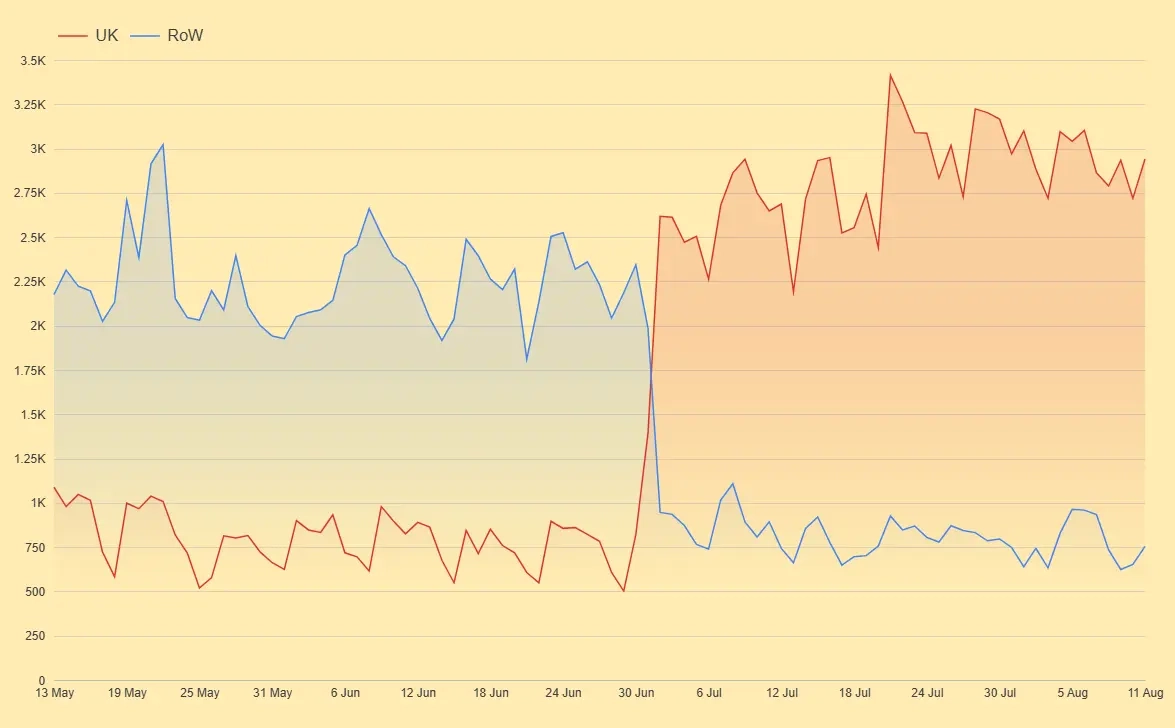
Two things appeared on my screen before me this morning as I sipped my first coffee in the office. One was that a client forwarded an email from Google Search Console asking if they could ignore it. The second was a LinkedIn post from Google Search Central talking about a new logo for Google Search Console, along with a slightly disparaging comment from an SEO expert on the topic.
Search Console?
If you’ve never run a website before, you may not have heard of Google Search Console. Actually, if you ran a website more than ten years ago, you’d know it as Google Webmaster Tools, but it’s essentially the same thing, with some new features and some useful old features removed.
As an SEO professional, Google Search Console (GSC) gives me tools to make sure your website is appearing in Google search properly, and also reports on how it’s performing. It does take a big of practice to understand what GSC is telling you, both in terms of performance and indexing reports.
This explains the client’s confusion when they received an email that said, “New reason preventing your pages from being indexed.”
Page Indexing
Google’s Index is an important thing. Basically, if you’re not in the index, you won’t appear in the search results. It’s essentially a big long list of all of the pages Google knows about and thinks deserve to be shown in search results. It’s built by Google’s spiders crawling across the internet and finding pages.
Why might a page not appear in Google’s index? Well, there are lots of reasons. The most common reason is that you don’t actually want that page to appear in the search results, either because it’s not useful to users to arrive at that page; for example an order confirmation page that someone should only see once they’ve completed your online checkout.
Another reason is that it’s not actually a page. Yes, it’s a valid URL, but it’s not a page. Take our home page: https://yello.studio/
That’s a nice, simple URL, but there are alternatives to it. https://www.yello.studio/ or http://yello.studio/ (with http instead of https) or https://yello.studio (without the trailing slash). All of those are simply redirected to the correct page, but if someone were to include a link to them accidentally, Google would try to crawl and potentially index those URL variants.
Issues With Page
Google have recently stopped using the phrase, “Issues with page prevent indexing,” because it implies it’s always a problem. But, as the email our client received shows, the new wording is still misleading.
The problem the client’s page had was similar to my example above. Google was refusing to index the www variant of their cookie policy page, as it already had indexed the non-www version. There are plenty of ways we can use to tell Google which variation we prefer. In most cases like this, we’ll simply have a redirect to the right version. Alternatively, we’d use “canonical” values to indicate our preferred URL.
Beyond human error pointing a link to the wrong place, there’s also the potential for URL variables (like UTM values or affiliate links) to cause problems. Or there can be old pages moved to new locations or migrations from one platform to another.
“Can I ignore this?”
Generally speaking, if you’re paying for us to manage your website’s SEO, then the answer to if you can ignore something is almost always, “yes.” Simply because we’ll not ignore it until we’re satisfied it’s not a problem.
There can be times when these emails from GSC are important and need to be taken seriously. Accidentally uploading the robots.txt file from the staging site to the live site? That’s a problem because Google won’t be able to spider your website.
Suddenly, there are hundreds of new pages on your website that Google has found and is refusing to index? It could be that a new URL variable has been accidentally introduced to your navigation, and we need to do a little technical work to straighten things out. Or it could be that your website has been hacked and is now advertising knock-off designer shoes in Korean.
Either way, it’s our experience that allows us to look beyond the “reason” Google gives for why a page isn’t indexed and look to whether it’s a problem or not.
New Logo
So, why were Google being ridiculed for being so proud of their new GSC logo?
It’s not an ugly logo, it doesn’t accidentally look like something rude. It’s just a new logo.
Well, it all comes down to Google not yet giving SEOs a proper report on how webpages are appearing in AI Overviews or the new AI Mode (currently not available in the UK).
Google have started to incorporate search data relating to AI Overviews into the performance report in GSC. The problem is that they aren't distinguishing it. Many sites are seeing what the industry is referring to as the crocodile of more impressions but fewer clicks (something we talked about in a recent blog), but Google’s lack of transparency about this is frustrating a lot of people.
The main source of the frustration is from those who rely on actual traffic to their website to make money. This doesn’t really cover our clients, who generally have something more tangible to sell, be it a product or a service. But, if your job is writing things to put on the internet and the money you make from that comes from advertising alongside your writing (think news websites), then AI Overviews robbing you of actual visitors is literally Google taking cash out of your pocket.
Industry Scorn
Google have said that they’re working on delivering better transparency to the SEO industry about how websites appear in AI Overviews. The reason for the ridicule is that instead of actually delivering on that assurance, Google appear to have focused on cosmetic changes to their flagship tool for such transparency.
For many websites that we run, the drop in actual clicks hasn’t actually resulted in less business for the website owner. Generally speaking, the clicks that they’re not getting aren’t the sort of website visitor that is going to become a paying customer right away. They’re “informational” searches, where someone wants to learn more.
AI Performance Reviews
To make up for the lack of formal reporting from Google, we’re relying on third-party tools to monitor how Google’s AI tools are impacting website performance. We’re also learning very quickly to recognise what impact it is having on traffic.
The long and short of this whole industry-shaking, epoch-shaping change is that SEO is much the same as it always was, it’s just how you implement it and measure it requires a little refinement. It’s certainly no less work or any less important than it was this time five years ago.


